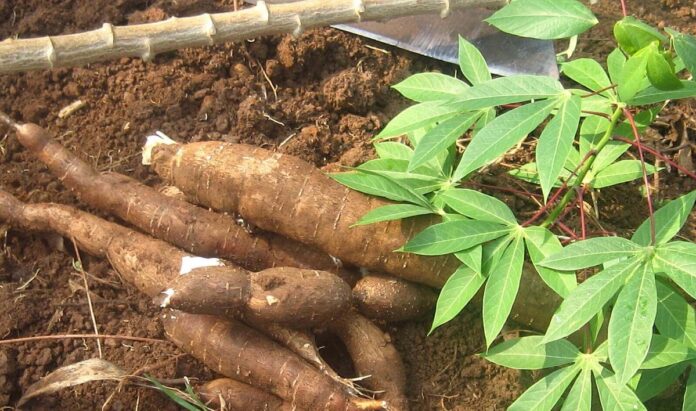Cassava is grown in broad agro-ecological zones. It yields better in deep loamy with good fertility and drainage. Even under harsh environmental conditions (low rainfall and low fertility), cassava will provide some food when other crops fail.
Let us look at Cassava Cultivation Under No-till.
How most farmers do it
In everyday practice, farmers “slash and burn” and plough before planting cassava. The other agronomic practices are basically the same for all methods. Except they are more expensive and less sustainable than the no-till method.
Land preparation under no-till
We clear the land and leave the vegetation residue on the field. No burning, no ploughing. This has several benefits to the soil and plants.
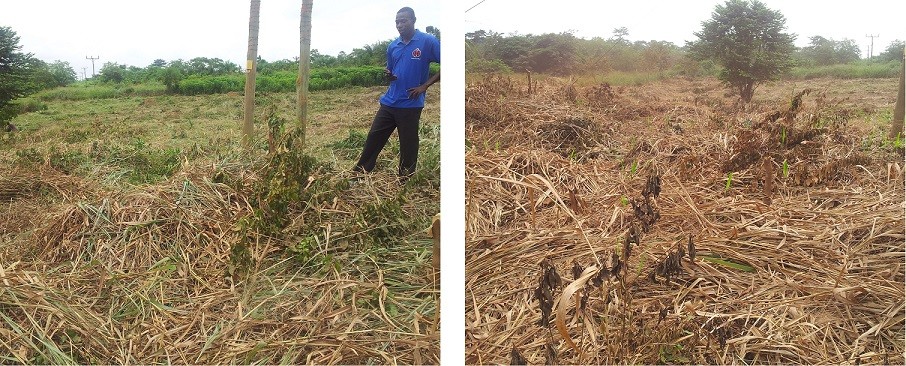 Field after clearing, applying the no-till technology
Field after clearing, applying the no-till technology
Planting Cassava
The quality of cassava planting materials is essential for good establishment. We select disease-free and healthy planting materials. The cassava materials are cut 20-25cm long or 3 to 5 buds. We plant at a distance of 1m×1m. This applies to all cassava varieties.

Weed control in cassava farm
One good thing about the no-till technology is that the residue left after clearing serves as mulch. The mulch reduces the density of weeds. And so you spend less money and time on weed control.
We usually carry out weed control when we deem it necessary. We do this a couple of times before harvesting.
 Field at first weed control after planting.
Field at first weed control after planting.
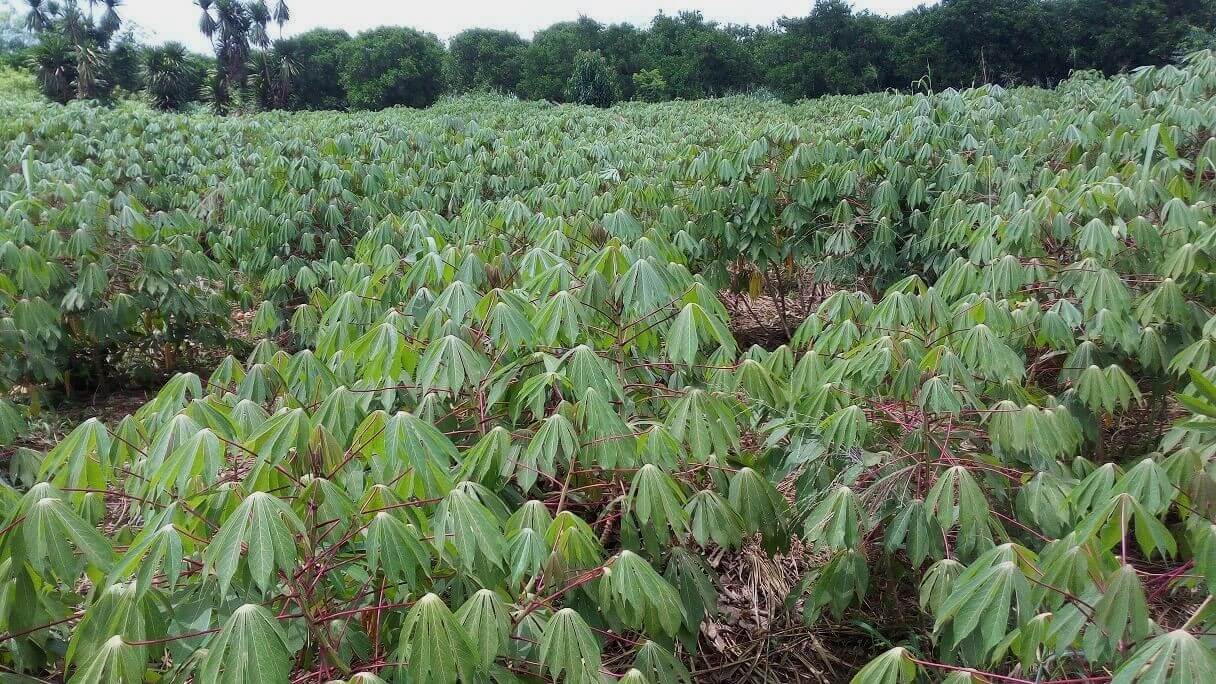
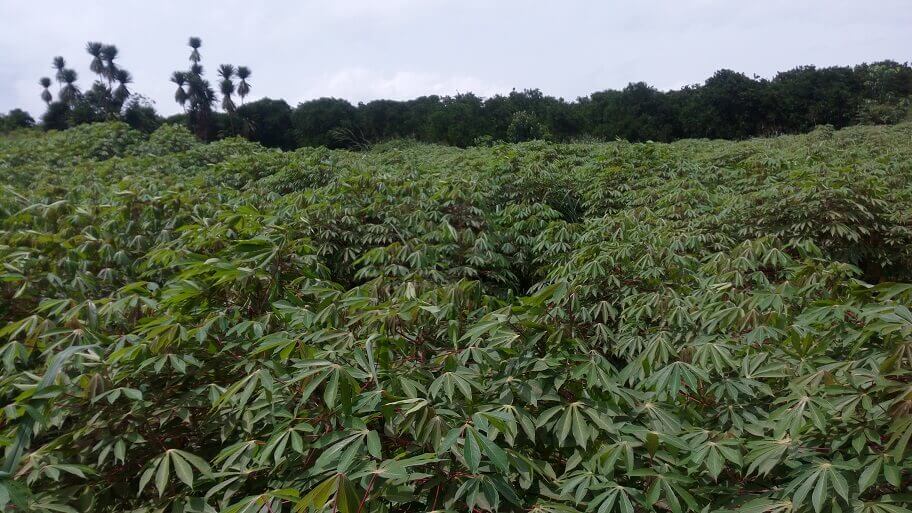
Harvesting cassava
Depending on the variety, weather conditions and others, 1ha cassava can yield an average of 12t/ha within a 12-month period.
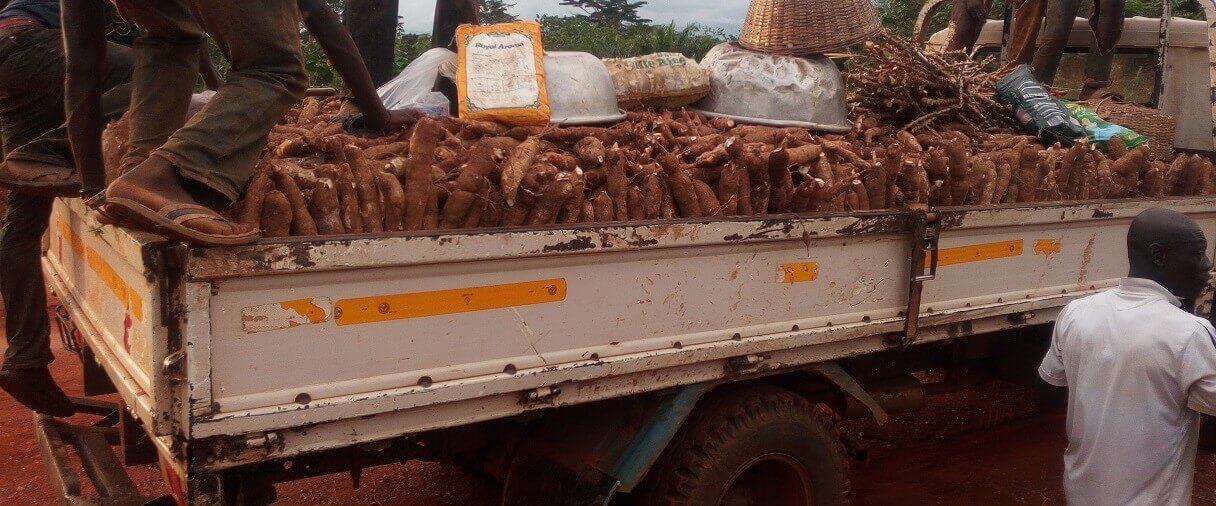
Read more on cassava here;
Detailed guide to the good cassava cultivation
Diseases of cassava and identification
Cassava diseases: Prevention and control
Get more cassava sticks in 7 simple steps; Rapid multiplication of cassava
